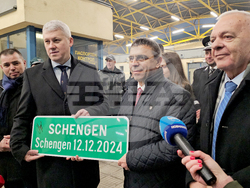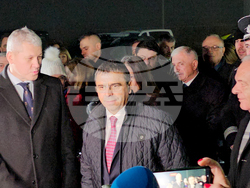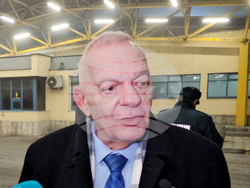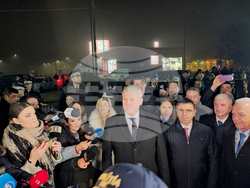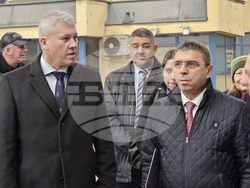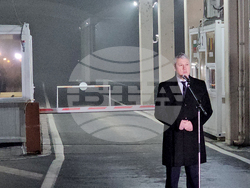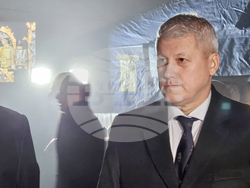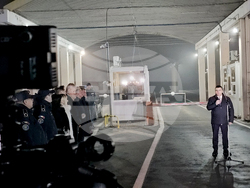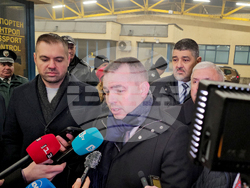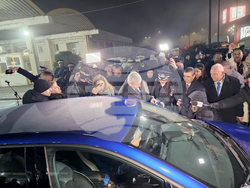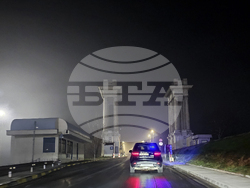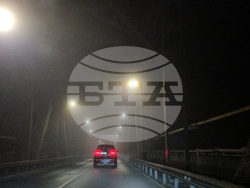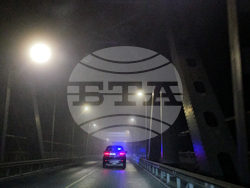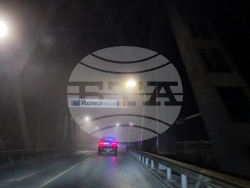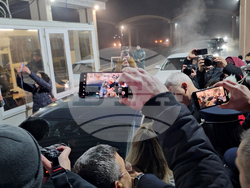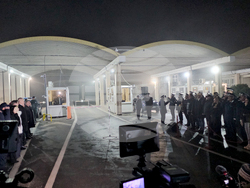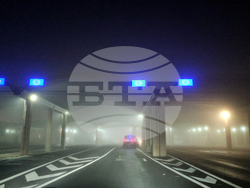site.btaBulgaria Celebrates Its Full Schengen Membership as "Crowning Achievement"
Bulgaria and Romania became full members of the Schengen free movement area as of January 1, 2025. The two neighbours joined Schengen by land on Wednesday after internal air and sea border controls were lifted for them on March 31, 2024. The European Commission's acknowledgement that Bulgaria meets the technical requirements for full membership came as far back as 2011, but accession was delayed by individual Schengen countries, apparently for reasons related to their own domestic policies. In the case of Bulgaria, Schengen membership means that travellers entering or exiting the country will go unchecked through the borders with Romania and Greece.
Bulgaria-Romania Border Ceremony
Bulgaria's Interior Minister Atanas Ilkov and his Romanian counterpart Catalin Predoiu symbolically raised the barrier at the Danube Bridge border crossing between Ruse and Giurgiu at 12:01am on Wednesday.
Addressing the Romanian guests, Atanas Ilkov said: "It is an extraordinary pleasure, responsibility and privilege for me to be here with you today. We have worked together for over 17 years to achieve this goal. We faced many challenges, but we succeeded, and today we can celebrate this success."
"For both countries, this is a historic success we achieved together through trust," said the Bulgarian Interior Minister. He thanked his Romanian counterpart for the invitation to mark the occasion at the border crossing and for the efforts made to achieve "this long-coveted goal." Ilkov also thanked Bulgarian and Romanian officials at the interior ministries for years of hard work.
For his part, Catalin Predoiu said: "Bulgaria and Romania have completed a project significant not only for the two countries but for Europe." He said this was a historic moment and a very important milestone for the economic sector and for the citizens of both countries. With the support of European partners, Bulgaria and Romania once again demonstrated that the EU is a living entity, the Romanian Interior Minister said.
Bulgaria's Border Police Director, Chief Commissioner Anton Zlatanov, said that the major progress achieved over the last year and a half was due to a significant increase in trust. "We have a very high level of trust with our neighbors and with all other West European partners from the EU and Frontex [the European Border and Coast Guard Agency]. Bulgaria and Romania's ministries of interior and Border Police forces are in the best possible condition due to the many tests and challenges we have been through in recent years. Our performance is of a very high standard, and this is appreciated by our European partners," Zlatanov added.
Bulgaria's Ambassador to Romania, Radko Vlaykov, said this is a historic moment for the two countries. "I believe this will highlight the level of communication and everything we have initiated within the framework of a strategic partnership signed by the Presidents of the two countries on March 15, 2023. I hope the new Romanian government will establish contact with a potential new Bulgarian government and they will work towards achieving all goals," Vlaykov said.
During the ceremony, an orchestra played the two national anthems. The event was attended by representatives of institutions of the two countries.
The entry of Bulgaria and Romania in Schengen was celebrated at the border crossing with champagne and fireworks. The local government of Ruse will give out cookies engraved with "BG-RO Schengen" to the first 1,000 passengers who cross the border.
By the end of 2024, all people and vehicles crossing the Danube Bridge were subject to a full mandatory check. As of January 1, cars travelling to Romania pay a bridge toll on the Bulgarian side, cross the bridge, and only a small part of them will be subject to checks on the Romanian side under the risk analysis method. The procedure will be mirrored for those travelling in the opposite direction, said Commissioner Dimitar Chorbadzhiev, head of the Ruse Border Police Regional Directorate.
This also applies to heavy goods vehicles. Those crossing into Romania pay a bridge toll on the Bulgarian side and only some of them will be checked on Romanian territory.
Bulgaria-Greece Border Ceremony
Later on Wednesday, Bulgaria's caretaker Prime Minister Dimitar Glavchev was at the Kulata crossing on the border with Greece for another ceremony marking Bulgaria's full accession to Schengen. Glavchev described it as "a historic event", "a crowning achievement", and "the result of the efforts of many people". During his visit to the border, the Prime Minister was accompanied by members of his cabinet and representatives of state institutions.
Glavchev credited this achievement "to the border guards, the servicepersons, the Frontex personnel and all our allies in the European Union". "I am convinced that together we will better protect the external borders of the EU," he said.
The caretaker Prime Minister noted that from Greece to Finland in the north and Portugal in the west, people can now cross without border controls. "From the very first days, the differences will become clear, and Bulgarian nationals will experience the comfort of our full Schengen membership," he added.
Border Police Director Anton Zlatanov, who attended the midnight ceremony at the border with Romania, later travelled with the Prime Minister to the Greek border. At Kulata, Zlatanov said the Bulgarian authorities are absolutely prepared to work in Schengen. He said: "We have studied the whole body of international expertise of all countries which gradually joined Schengen before us. They made mistakes, too. We reviewed their mistakes. Over the last few years, our Border Police and Interior Ministry came under massive pressure in the form of checks, control and monitoring. The Border Police was checked repeatedly in recent years, which put it in the best possible shape and at the highest European level."
For a few days, the Border Police will be assisting travellers in crossing the border with Greece, Zlatanov explained. Officers at Kulata will assist cross-border movement and will identify suspicious vehicles. "We will need to work in very different ways than before. We will work in the border zone. It is 30 km wide along the entire Bulgarian border. Border police will be stationed by the roads within the 30 km zone along the internal Schengen borders with Greece and Romania to check passenger cars, trucks and vans," he said.
The National Revenue Agency (NRA) is tightening control of high fiscal risk goods. The checks, however, will be conducted inland and at unloading locations known to the NRA, the Agency's Executive Director Rumen Spetsov said at Kulata. The movement of cargo identified as risky by risk management experts will continue to be inspected, too, jointly with the rest of the institutions.
"The NRA continues to perform its control functions. The fact that our inspectors will not be at the border crossings but inland will by no means lower the level of the inspections' security and effectiveness. We have mobile offices with access to the central database so as to be able to track down high fiscal goods in real time," Spetsov told journalists.
Tourism Minister Evtim Miloshev, who also visited the Kulata checkpoint, said that Bulgaria is both an attractive and safe destination. He expressed optimism about the future of tourism, now that the country is a full-fledged Schengen member. Miloshev noted that Bulgaria's tourism product is highly competitive, particularly in terms of the quality-price ratio.
Meanwhile, Bulgarian authorities conducted what are known as compensatory checks of vehicles in the Kulata area. The Customs Agency, the Border Police, the NRA and the Road Transport Administration contributed equipment and personnel for the purpose.
/VE/
Additional
news.modal.image.header
news.modal.image.text
news.modal.download.header
news.modal.download.text
news.modal.header
news.modal.text
